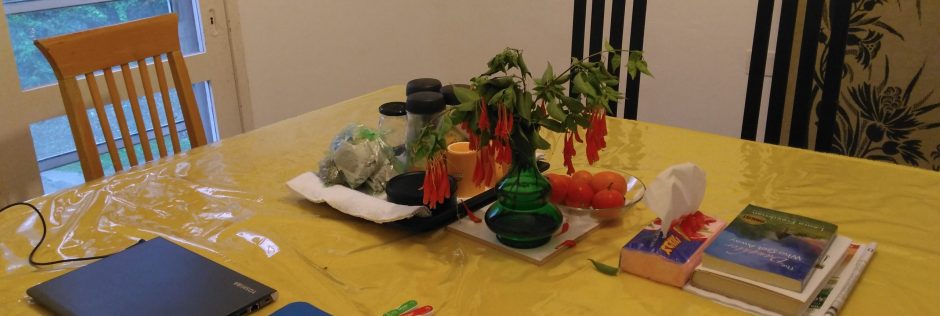 Yedidja and his siblings grew up in Jerusalem in the 1920’s and 30’s, speaking Ladino at home, Arabic in the market, English at school, and Hebrew in the synagogue. Closest to their hearts was Ladino, the language of the Jews exiled from Spain, but their own children grew up speaking Hebrew in the new state of Israel. Ladino became a medium in which the older folks relived warm memories and talked of intimate things not meant for children. Sometimes they still sang the Ladino romances, like “Open Your Closed Door.”
Yedidja and his siblings grew up in Jerusalem in the 1920’s and 30’s, speaking Ladino at home, Arabic in the market, English at school, and Hebrew in the synagogue. Closest to their hearts was Ladino, the language of the Jews exiled from Spain, but their own children grew up speaking Hebrew in the new state of Israel. Ladino became a medium in which the older folks relived warm memories and talked of intimate things not meant for children. Sometimes they still sang the Ladino romances, like “Open Your Closed Door.”
Gradually Ladino was pushed aside, and when they wanted to speak it, sometimes its beautiful words and sentences, related to medieval Spanish and Hebrew, had to be brought back from semi-forgetfulness. Some words were misplaced and never found again, like the key to the front door of the family’s home in Spain. Their ancestors had taken the key along with them when King Ferdinand and Queen Isabella expelled them from Spain in 1492. Yedidja and his sister Sharona knew this key had been passed down for generations.
Sharona had actually seen the key once, or thought she had, in her mother’s bureau. After her mother’s death, they looked for the key among her possessions, but they didn’t find it. Sharona finally concluded that she might just have been born with the memory of seeing the key already inside her. She had a strong feeling for Sephardic culture, which she passed down to her daughter Tamira, who was born in 1948, the same year that the state of Israel came into being.
When Tamira was a university student in the 1970s, she won a scholarship to study in post-Franco Salamanca. There, she saw the church that had menorahs carved on the frieze around the ceiling, revealing what had once been a synagogue. Tamira was tall, with long dark hair, and was always told that she was Spanish-looking. When she said she was a Sephardic Jew, Christian Spaniards asked if she had brought along the key to the door of her family’s home in Spain before 1492. They also requested to feel her horns. When she told the few Jews she met that she was from Jerusalem, they were entranced and looked at her as if they saw a halo around her head.
Tamira loved the beauty of Spain, but she also felt strange there. It was as if she were not herself but some immortal being made up of many other beings who had sung the romances and longed for the sun and dry hills, the oranges and flowing rivers of Spain. It was not easy to do this century after century, especially living in cold places like Sofia, Bulgaria, where her grandmother was born. Tamira carried within her these people who were so determined never to forget a Spain they did not really remember. She sometimes wondered why she was the one who finally got to see this place after nearly 500 years.
At the end of Tamira’s semester in Spain, Sharona went to visit her; it was her first time ever to set foot in this homeland that she’d felt as part of her being for her entire life. They went touring around, and while Tamira could speak modern Spanish to people, Sharona could speak only Ladino. This was no problem; everyone understood her and loved her funny way of expressing herself. “You sound just like Cervantes!” a woman on a bus exclaimed. Sharona felt very good about that. She always said that she felt very well in Spain.
Copyright © Leora Freedman 2015
***If you have something to say, or a story to share, our comments page is the place to leave it!
 Copyright secured by Digiprove © 2015 Leora Freedman
Copyright secured by Digiprove © 2015 Leora Freedman 
